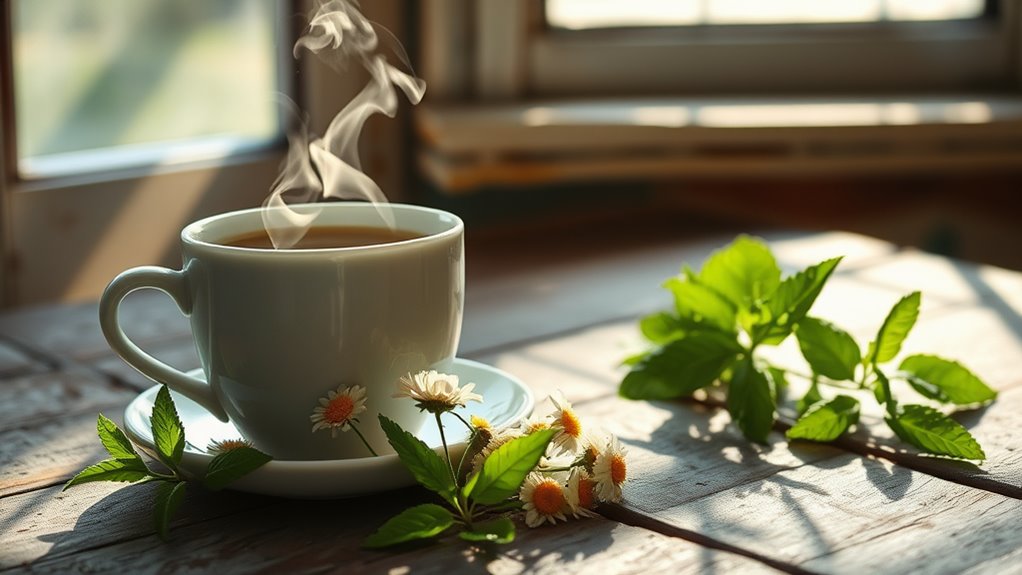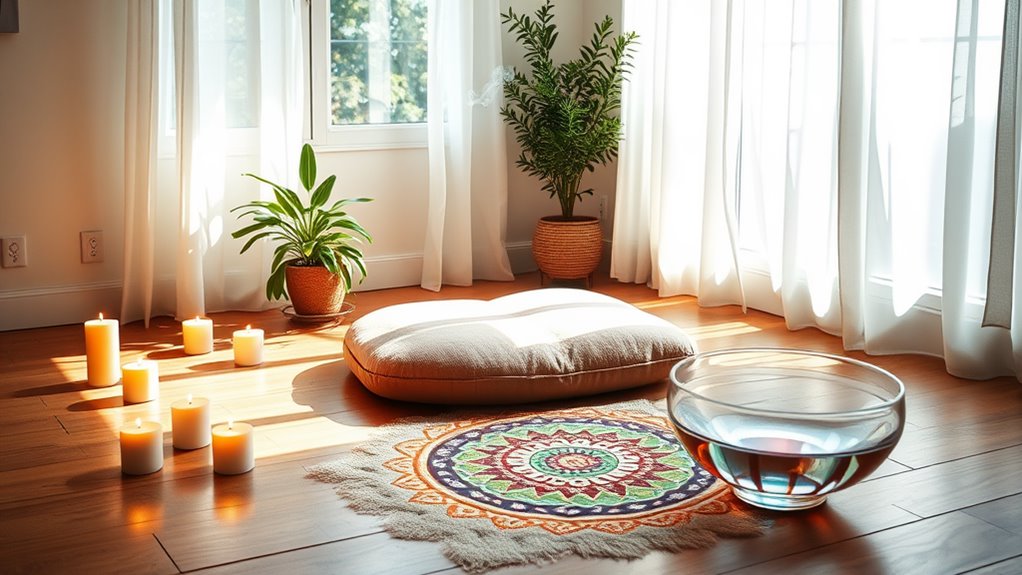How I Stay Calm Without Meditating
Staying calm without meditation can be a challenge, but it’s entirely possible. You might find that simple activities, like nature walks and journaling, help center your thoughts. Engaging in creative hobbies can also provide a refreshing escape from daily stressors. Each method offers a unique approach to finding tranquility in your life. Curious about how to incorporate these practices into your routine? Let’s explore some effective strategies together.
Breathing Exercises for Instant Calm
Breathing exercises can be a game-changer when you need to find calm in the chaos. You don’t have to meditate to harness their power.
Start by taking a deep breath in through your nose, filling your lungs completely. Hold for a few seconds, then exhale slowly through your mouth. Repeat this process several times, focusing solely on your breath.
You’ll notice your heart rate slowing and your mind clearing. These non-meditation calm tips help ground you in the present moment, allowing stress to melt away. Practicing this technique for five minutes can reduce stress levels and help you feel more centered and relaxed.
Incorporate this simple practice into your daily routine, and you’ll feel more centered and relaxed.
The Power of Nature Walks
Finding calm doesn’t always require structured techniques like breathing exercises. Sometimes, all you need is a nature walk.
Stepping outside, you breathe in fresh air and let the sounds of rustling leaves or chirping birds wash over you. As you stroll, the rhythm of your footsteps can ground your thoughts, allowing worries to fade into the background.
Notice the colors and textures around you; they draw your attention away from stress. Nature has a unique way of rejuvenating your spirit. Engaging with nature walks not only boosts your mood but also helps reduce stress levels.
Journaling to Release Stress
Journaling can be a powerful tool for releasing stress and clarifying your thoughts. When you put pen to paper, you create a safe space to express your feelings and frustrations. It allows you to process experiences and gain perspective.
Don’t worry about grammar or structure; just write freely. You might find that once you start, emotions flow effortlessly, helping you identify what’s bothering you. Regular journaling can also reveal patterns in your thoughts, making it easier to tackle issues head-on. Additionally, engaging in journaling can promote self-reflection and personal growth, enhancing your overall well-being.
Mindful Eating Practices
While life often pulls us in different directions, practicing mindful eating can ground you in the moment and enhance your overall well-being.
Start by slowing down during meals; savor each bite, and pay attention to flavors and textures. Turn off distractions like TV or phones to fully engage with your food.
Notice your body’s hunger and fullness cues, and eat until you’re satisfied, not stuffed. This simple practice cultivates gratitude for your meals, helping you appreciate the nourishment they provide. By incorporating regular gratitude expression, you can further improve your mental health and overall happiness.
Engaging in Creative Hobbies
Engaging in creative hobbies can be a powerful way to relieve stress and foster a sense of calm in your life. Whether it’s painting, knitting, or playing an instrument, these activities allow you to express yourself and focus your mind on something enjoyable.
When you create, you immerse yourself in the moment, pushing worries aside. You don’t need to be a pro; it’s about the joy of creation. Set aside time each week for your hobby, and watch how it boosts your mood and sharpens your focus. Engaging in creative activities regularly can also enhance emotional intelligence, leading to a more resilient and joyful existence.
You’ll find that these moments of creativity become a refreshing escape from daily stressors.





